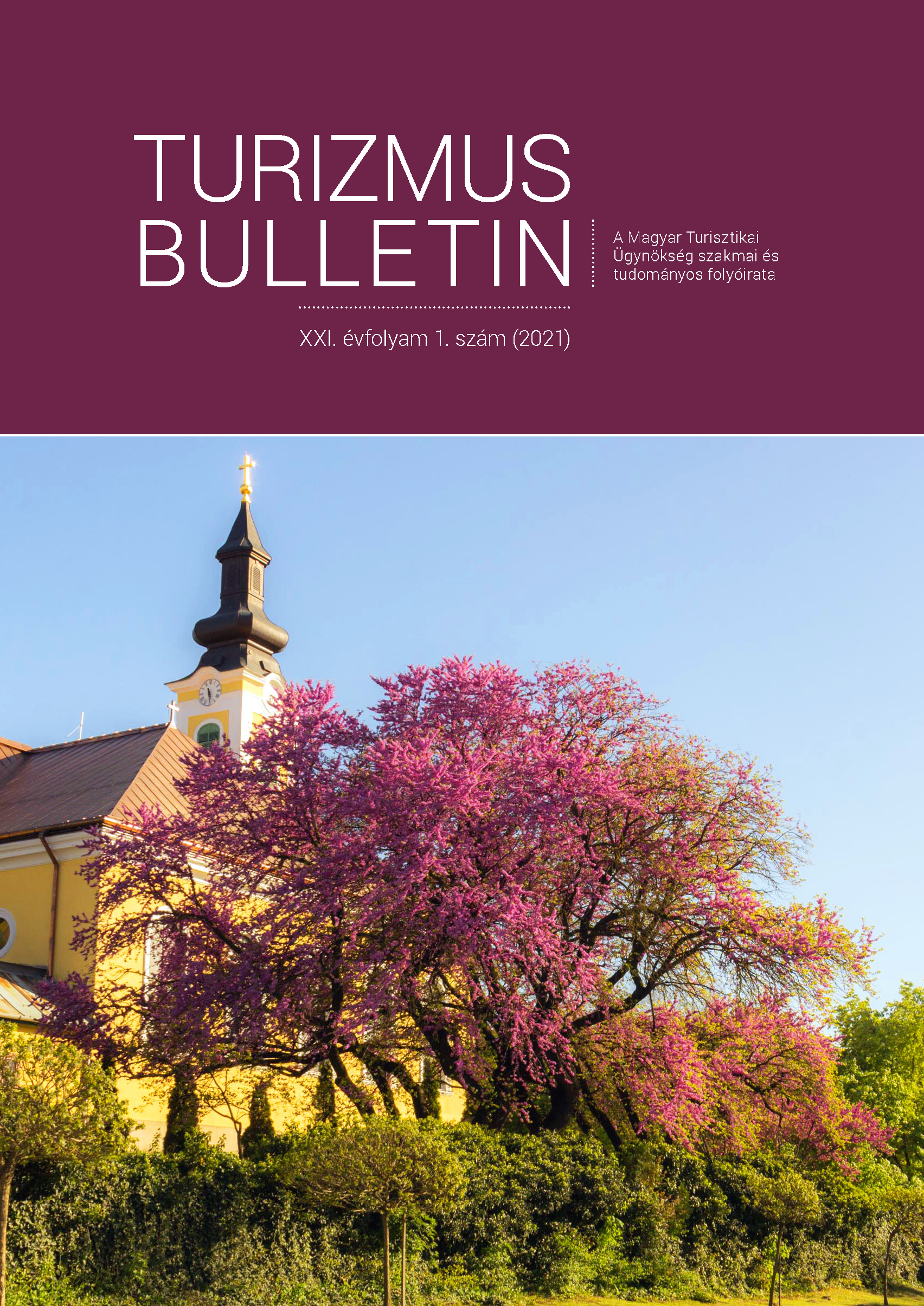How can we travel after the COVID-19 pandemic?
DOI:
https://doi.org/10.14267/TURBULL.2021v21n1.5Keywords:
COVID-19, pretravel counseling, vaccination, air travel, travel insuranceAbstract
International travel will resume in parallel to the decline of COVID-19 pandemic. However, neither travel practices nor travellers’ attitudes will be the same as before. Travel safety is in the common interest of both travellers and of the actors in the travel business, and so the prevention of travel-related illnesses and communicable diseases is of fundamental importance. The only way to manage this is appropriate pre-travel advice for travellers. Withh the help of pre-travel counselling, the majority of medical problems could be prevented. The post-covid way of pre-travel advice must include the prevention of COVID infection, as well as other safety measures. At the same time, the task of ensuring safe travel is not exclusively medical business. All safety and preventive measures must be known and must be implemented by all participants in the travel business. This article offers a brief summary of these issues.
References
BOUROUIBA, L. (2020): Turbulent gas clouds and respiratory pathogen emissions: Potential implications for reducing transmission of COVID-19. JAMA. 323(18). pp. 1837–1838. doi: 10.1001/jama.2020.4756
FELKAI P. – PARAGH GY. (szerk.) (2011): Az utazásorvostan tankönyve. Medicina Könyvkiadó.
FELKAI P. (2018): SARS: a szuperszonikus betegségek korának kezdete – in memoriam Carlo Urbani (1956–2003). Orvosi Hetilap. 159(52). pp. 2226–2229. https://doi.org/10.1556/650.2018.HO2616
GUY, J. S. – BRESLIN, J. J. – BREUHAUS, B. – VIVRETTE, S. – SMITH, L. G. (2000): Characterization of a coronavirus isolated from a diarrheic foal. Journal of Clinical Microbiology. 38(12). pp. 4523–4526. https://doi.org/10.1128/JCM.38.12.4523-4526.2000
HAMER, D. H. – CONNOR, B.A. (2004): Travel health knowledge, attitudes and practices among United States travelers. Journal of Travel Medicine. 11(1). pp 23–26. https://doi.org/10.2310/7060.2004.13577
JEFFERSON, T. – FOXLEE, R. – DEL MAR, C. – DOOLEY, L. – FERRONI, E. – HEWAK, B. – PRABHALA, A. – NAIR, S. – RIVETTI, A. (2008): Physical interventions to interrupt or reduce the spread of respiratory viruses: systematic review. BMJ. 336(7635). pp. 77–80. doi: 10.1136/bmj.39393.510347.BE
KANG, S-J. – JUNG, S. I. (2020): Age-related morbidity and mortality among patients with COVID-19. Infect Chemother. 52(2). pp. 154–164. doi: 10.3947/ic.2020.52.2.154
LENGYEL, I. – FELKAI, P. (2018): Pre-travel advice and patient education of Hungarian travellers. Orvosi Hetilap. 159(9). pp. 357–362. doi: 10.1556/650.2018.30987
LUBY, S. P. – AGBOATWALLA, M. – FEIKIN, D. R. – PAINTER, J. – BILLHIMER, W. –ALTAF, A. – HOEKSTRA, R. M. (2005): Effect of hand washing on child health: a randomized controlled trial. Lancet. 366(9481). pp. 225– 233. doi: 10.1016/S0140-6736(05)66912-7
LUDVIGSSON, J. F. (2020): Systematic review of COVID-19 in children shows milder cases and a better prognosis than adults. Acta Paediatrica. 109(6). pp. 1088–1095. DOI: 10.1111/apa.15270
OLSEN, S. J. – CHANG, H-L. – CHEUNG, T. Y-Y. – TANG, A. F-Y. – FISK, T. L. – OOI, S. P-L. – KUO, H-W. – JIANG, D. D-S. – CHEN, K-T. – LANDO, J. – HSU, K-H. – CHEN, T-J. – DOWELL, S. F. (2003): Transmission of severe acute respiratory syndrome on aircraft. The New England Journal of Medicine. 349(25). pp. 2416–2422. doi: 10.1056/NEJMoa031349
SCHULTZ, M. – FUCHTE, J. (2020): Evaluation of aircraft boarding scenarios considering reduced transmissions risks. Sustainability. 12(13): 5329. https://doi.org/10.3390/su12135329
TULADHAR, E. – HAZELEGER, W. C. – KOOPMANS, M. – ZWIETERING, M. H. – DUIZER, E. – BEUMER, R. R. (2015): Reducing Viral Contamination From Finger Pads: Handwashing Is More Effective Than Alcohol-Based Hand Disinfectants. The Journal of Hospital Infection. 90(3). pp. 226–234. doi: 10.1016/j.jhin.2015.02.019
YANG, J. – ZHENG, Y. – GOU, X. – PU, K. – CHEN, Z. – GUO, Q. – JI, R. – WANG, H. – WANG, Y. – ZHOU, Y. (2020): Prevalence of comorbidities in the novel Wuhan coronavirus (COVID-19) infection: a systematic review and meta-analysis. International Journal of Infectious Diseases. 94. pp. 91–95. https://doi.org/10.1016/j.ijid.2020.03.017
Internetes források
CDC (CENTERS FOR DISEASE CONTROL AND PREVENTION) (2019): Food and Coronavirus Disease 2019. https://www.cdc.gov/coronavirus/2019-ncov/daily-life-coping/food-and-COVID-19.html, Letöltve: 2020. június 23.
IATA (INTERNATIONAL AIR TRANSPORT ASSOCIATION) (2020a): IATA Updates COVID-19 Financial Impacts – Relief Measures Needed. https://www.iata.org/en/pressroom/pr/2020-03-05-01, Letöltve: 2020. június 23.
IATA (INTERNATIONAL AIR TRANSPORT ASSOCIATION) (2020b): IATA Calls for Passenger Face Covering and Crew Masks. Press release: 39. https://www.iata.org/en/pressroom/pr/2020-05-05-01/, Letöltve: 2020. augusztus 2.
OECD (ORGANISATION FOR ECONOMIC CO-OPERATION AND DEVELOPMENT) (2020a): Coronavirus pandemic is an unprecedented

